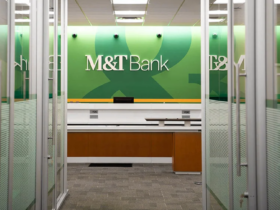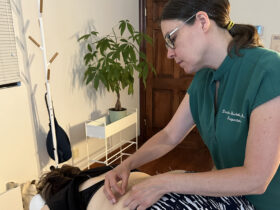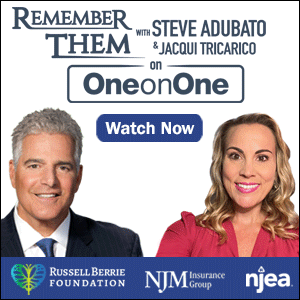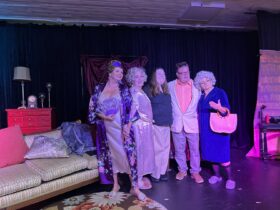 The National Women’s Business Council (NWBC) has one single and straightforward mission: provide recommendations to Congress, the White Houses and the Small Business Administration on programs, actions and legislative efforts that would help more women start companies or grow the ones they own – in New Jersey, and across the country.
The National Women’s Business Council (NWBC) has one single and straightforward mission: provide recommendations to Congress, the White Houses and the Small Business Administration on programs, actions and legislative efforts that would help more women start companies or grow the ones they own – in New Jersey, and across the country.
This matters on several levels. First, women-owned businesses contribute nearly $1.9 trillion dollars to our economy. That is dramatic. Second, women business owners represent about 42 percent of all businesses – a substantial increase since women-businesses were first counted in 1977. Back then, we only represented slightly more than 4 percent of all businesses. And third, there are approximately 13 million women-owned firms in the country, according to American Express State of Women-Owned Businesses Report.
As a small business owner, I was honored to accept the appointment as Chair of the National Women’s Business Council. From my experience as a former tech company co-founder (which grew to more than 300 employees and $25 million in revenue) and through my current strategy firm which focuses on helping early stage B2B tech businesses gain revenue and traction, I wanted to create a list of impactful policy recommendations and solutions that would benefit women-owned businesses and female founders across the country. The challenges that I’ve faced — and continue to see women founders face — have uniquely shaped the Council’s focus.
NWBC has prioritized three issues: improving access to capital, encouraging more women to start and grow STEM-related companies and eliminating obstacles facing women in rural communities. Each December, we publish an annual report with recommendations in each of these areas. Throughout the year, we review and analyze federal government initiatives and programs that affect women business owners and share concerns as they arise. I point to our recent interaction with the SBA Administrator about the PPP program to illustrate. Both SBA and the Council share a mutual interest in ensuring that small businesses, in our case particularly women-owned small businesses, get honest access to this emergency funding. The set-aside for local and community banks in the second round of PPP funding helped make that possible since small companies tend to work with small banks.
Even when the economy is soaring, accessing capital poses a challenge for female founders. As an angel investor, I’ve come to understand that many of the types of enterprises that women typically launch occur outside the zone where venture capital firms and private equity companies invest. This means that we need to encourage more female investors and find innovative ways to bring crucial services and products to the marketplace. Since ninety percent of all women-owned businesses are solopreneurs (meaning they have no employees), rarely will venture money serve as an option. These solopreneurs deliver important healthcare, personal and consulting services including mental health services, childcare centers, communications strategy and support, bookkeeping, photography and other similar ‘cottage’ or virtual businesses. They bring value to our families and vibrancy to our neighborhoods. They need money to grow, too, but where is it?
Last year, the Council recommended that Congress amend the IRS code to allow for a “Federal Angel Investment Tax Credit” – a credit against an individual’s taxes for a percentage of the qualified equity investment or loan they personally make in a small business. We see this as a way to bring new investors to the table on the community level who will be motivated to financially support their local bakery or boutique, for example – many of which are owned by women, as data shows.
The U.S. Census Bureau recently released new estimates on the number women-owned firms that do have employees. Based on their 2018 Annual Business Survey (ABS) covering the year 2017, that number is now 1.1 million. What do these companies do? Closer examination of the data also shows that over one-third (33.3 percent) of these companies delivered crucial healthcare, social assistance, and a variety of professional services. The next largest sector of women-owned employer firms, 11.7 percent, consisted of retailers.
It is of no surprise that the types of employer firms owned by women very much mirror the sectors embraced by female solopreneurs. Their needs for capital are no less, yet their larger size and business assets open other doors to other funding sources, such as commercial loans or even the stock market if they can go public. For those women business owners, having financials in order and up to date will play a critical role in their loan applications. This overall subject of financial literacy pertaining to female founders currently garners NWBC deliberation. We expect to have some recommendations on this by end of year.
Keeping our finger on the pulse of the women founders around the country ensures our attention to issues we should address, whether pertaining to capital or to other business challenges. The more NWBC hears from you about business obstacles, the more precisely we can weigh in with recommended solutions to the appropriate federal government body to alleviate or address those issues.
Liz Sara is the chair of the National Women’s Business Council, an independent, non-partisan federal advisory committee established to provide advice and policy recommendations to the President, Congress, and the Administrator of the SBA. Follow us on Twitter @NWBC, Facebook and LinkedIn and join our newsletter by visiting www.nwbc.gov. We want to hear from you.













